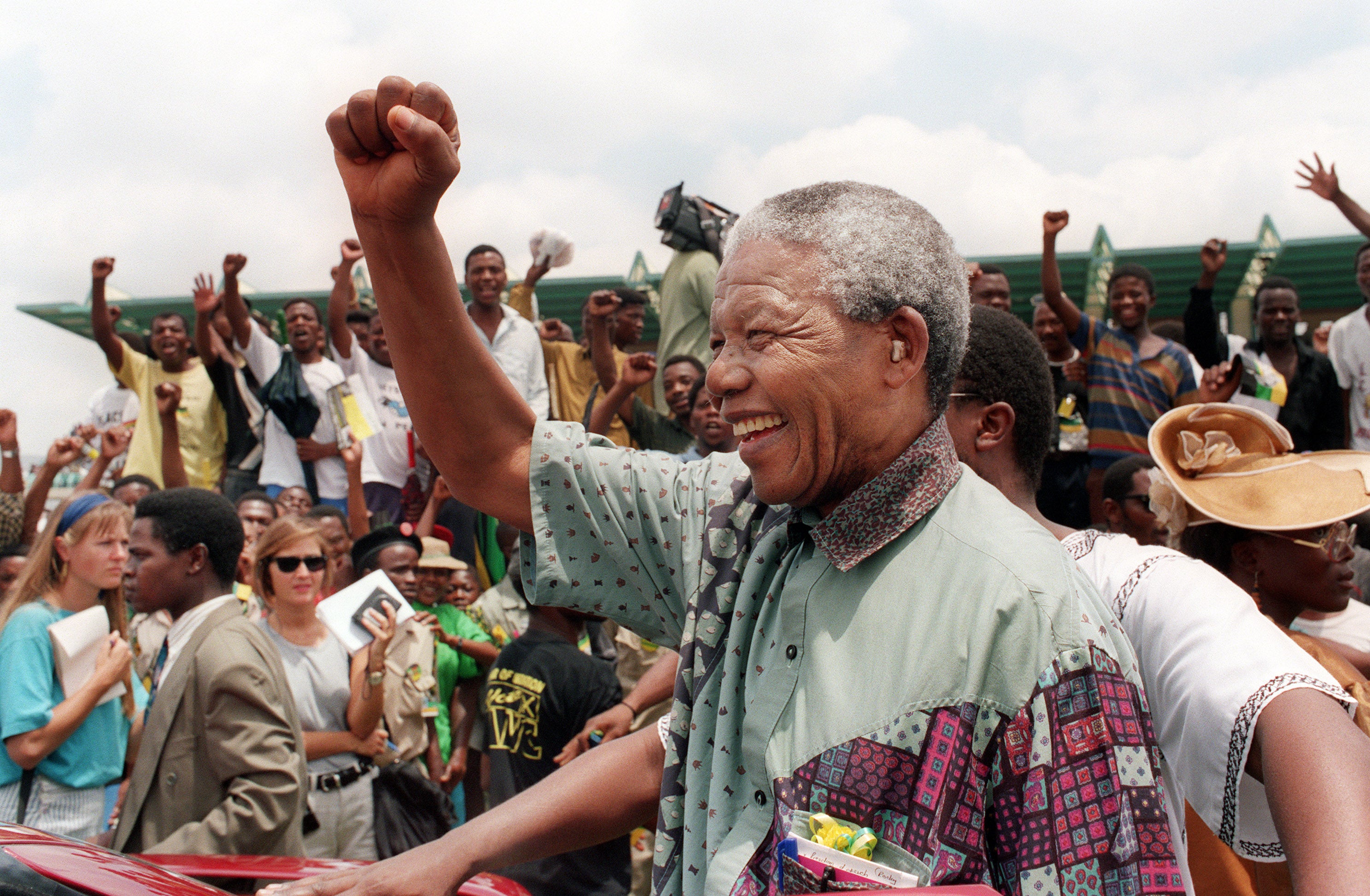My grandfather Nelson Mandela would want us to follow in his footsteps – and end climate apartheid
He believed in the power of hope and collective action, writes Ndileka Mandela, and at Cop28 the parallels with his struggle against apartheid were there for the world to see


In the annals of history, pivotal moments redefine our collective journey, rewrite our shared destiny, and reshape global consciousness. As the granddaughter of Nelson Mandela – himself a global symbol of resilience and justice – I recognised such a moment at Cop28.
This summit transcended a mere gathering of nations; it emerged as a beacon of hope in our crucial fight against climate apartheid. This term, which refers to the stark divide between those who can afford to escape climate change’s worst effects and those who can’t, carries more than an echo of social injustice – it is a clarion call for global equity in the face of environmental crisis.
Let’s be clear: climate apartheid is a damning indictment of our global systems. It’s not just an environmental crisis; it’s a crisis of ethics and equity that reveals our current environmental crisis is as much a product of economic and social systems as it is of carbon emissions. The parallel to the apartheid regime my grandfather opposed is stark: just as systemic racial injustice upheld inequality, so too does climate apartheid perpetuate a divide where the rich insulate themselves from impacts that disproportionately afflict the poor and marginalized.
That’s why in the run-up to, and during this Cop, I was outspoken about the state of climate apartheid which I believed the world was not merely on the brink of – but deeply characterised by.
Beginning any kind of pushback against the structural drivers of climate apartheid at Cop28 was always going to be a tall order.
I certainly had my doubts – as did many in the Western world who had largely written off the Cop president, Dr Sultan Al Jaber, an energy man at the helm of the UN climate summit.
But Al Jaber proved his sceptics wrong. At Cop28, we finally saw more than mere discussion. In defiance of the sceptics, Al Jaber helped the summit do what no previous Cop over 27 years had ever done before: it ushered in the collective awakening the world desperately needed.
Yes, there is still much to do, but the summit’s unprecedented consensus on transitioning away from fossil fuels signals the beginning of a necessary transformation of entrenched energy systems. This isn’t merely policy evolution; it represents a sea-change – the first time the entire world agrees on the urgent need to redefine our energy architecture from one that privileges fossil fuel interests to one that prioritizes planetary health and equity.
The financial initiatives which have been announced – including the UAE’s $30 billion climate fund, and the $700 million for lower-income countries – go beyond fiscal measures. These commitments are significant, yet their success hinges on implementation strategies that prioritise transparency, accountability, and genuine partnership with affected communities. They are a step towards equitable climate financing, but their true value will be measured by their impact on the ground, in the lives of those most vulnerable to climate change.
The focus on sustainable agriculture at Cop28, with over 130 countries including agricultural emissions in their climate plans, signals another transformational shift. In Africa, where farming is not just an occupation but a lifeline, incorporating agriculture into climate strategies is not merely sensible; it’s a matter of survival and justice.
At this Cop, delegates finally recognised that agriculture is not merely a sector to be regulated, but a vital nexus of food security, community resilience, and ecological stewardship. That makes these measures more than just environmentally sound, but also a means to protect and empower those at the frontlines of climate vulnerability.
The commitment to expand renewable energy and the pledge by oil and gas companies to achieve near-zero methane emissions reflects a growing acknowledgment within the industry of its role in the climate crisis.
However, these pledges must be matched by robust, verifiable actions. The transition to renewables offers economic opportunities, but also demands careful consideration of workforce transitions, ensuring that communities reliant on fossil fuel industries are not left behind in the shift to a greener economy.
Reflecting on Cop28, I am reminded of my grandfather’s faith in hope and collective action. I am also struck by the enormity of the task ahead. Tackling climate apartheid requires more than environmental action; it demands a radical overhaul of our socio-economic structures. Our vigilance must extend beyond policy implementation, to ensuring the equity and inclusivity of our climate response.
The “UAE consensus” at Cop28 is an unprecedented, transformational starting point; but the real test lies in its execution and translation into tangible, equitable, and sustainable actions. Affluent nations and individuals must lead not only in commitments but in accountable, empathetic action that recognises the interconnected nature of our global community.
In the spirit of Nelson Mandela, let’s seize this moment not as a victory lap, but as a clarion call to intensify our efforts. We must strive for a world without climate apartheid – where every person, irrespective of their socio-economic status, is guaranteed a safe, healthy, and sustainable future.
Ndileka Mandela is a writer, social activist, and the head of the Thembekile Mandela Foundation






Join our commenting forum
Join thought-provoking conversations, follow other Independent readers and see their replies
Comments